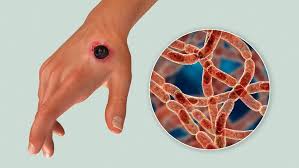Life expectancy in ECOWAS countries ranges from 54.7 to 73 years in 2019 – WAHO

The West Africa Health Organisation (WAHO), says that Life expectancy in ECOWAS member countries is estimated to range from 54.7 to 73 years in 2019.
It said Cape Verde and Senegal have the highest number of above 65 years.
Prof. Stanley Okolo, the WAHO Director-General (DG), disclosed this in an interview with News Agency of Nigeria (NAN), on Monday in Abuja.
Okolo said deaths observed in the region can be organised according to the broad categories of causes.
He said that with the exception of Cape Verde, ECOWAS countries generally show the same pattern in the distribution of causes of death.
“Communicable diseases cause more than half of all deaths. Notable amongst these is the very high burden of malaria, HIV, viral hepatitis and Non-communicable diseases.
“This burden is due in particular to nutrition-related diseases, cardiovascular diseases and cancers.
“Finally, the share of deaths from injuries (road traffic accidents, occupational accidents, suicides, crimes, etc.) in the region is about one-tenth in each of the countries of the region,” he explained.
The WAHO DG said that the incidence of the major communicable diseases is still high in the region with new HIV infections at 93 per 100,000 inhabitants in The Gambia and 88 per 100,000 in Guinea Bissau reported in 2020.
“In contrast, Niger and Senegal had 50 and 80 per 100,000 respectively, while Guinea Bissau and Liberia had the highest incidence of TB in 2020.
“The reported values were 361 and 341 new cases per 100,000 inhabitants respectively. For malaria, several countries had more than 300 new infections per 1,000 inhabitants. These were Burkina Faso (399), Mali (387), Benin (386), Liberia (362), Niger (357), Côte d’Ivoire (331) and Sierra Leone (320).
“It should be noted that Cape Verde has no new cases of malaria,” he said.
Speaking on the Health Service Coverage in the region, Okolo said that the information on health service coverage was for the year 2020, although some countries validate their national data one year late.
“It is after this that WAHO can collect, compile and transmit the regional information.
“The ECOWAS region is still characterised by low health service coverage. There are different values between countries, ranging from 35 per 100 in Cape Verde to less than one in Mali (for primary level health facilities).
“Three countries (Sierra Leone, Senegal and Liberia) reported more than 7.5 hospitals per million inhabitants.
“An important comment in respect of secondary and tertiary level hospitals is that they are unevenly distributed, often being concentrated in large cities and not always geographically accessible to some,” he said.
Okolo said that in terms of health personnel, the levels reached were also very low, adding that another important issue in the provision of health services is immunisation.
“Bacillus Calmette–Guérin (BCG) vaccination coverage was on average 93 per cent in the region, although the recommendations for achieving the Sustainable Development Goals (SDGs) call for at least nine doctors per 10,000 inhabitants, 12.7 midwives and 22.8 nurses,” he said, indicating that the countries in the region that reported their data show levels far below.”
According to him, despite limited available resources, the main services offered to the population have achieved significant coverage rates.
“On the first ante-natal visit by pregnant women, Liberia has a very low rate with less than one third of pregnancies being followed up. The highest coverage is reported in Côte d’Ivoire (99 per cent), Cape Verde (92 per cent) and Guinea (91 per cent),” he said.
He said, however, that overall, the coverage of first and fourth ante-natal visits between 2018 and 2020 in ECOWAS countries, increased from 64 per cent to 76 per cent for the first ante-natal visit and from 30 per cent to 47 per cent for the fourth visit in the region.
He said there have been significant declines, including a loss of more than 44 percentage points, in ante-natal I coverage and three points in antenatal II coverage in Liberia.
“This reflects the need to sustain effort. Another important health issue in the provision of health services is vaccination.
“BCG vaccination coverage was on an average 93 per cent in the region. For the third dose of the pentavalent vaccine, it was 93 per cent.
“Coverage for measles vaccine was estimated at 90 per cent. In all, 67 per cent of the region’s children between ages 12 and 23 months received all the vaccines recommended by the expanded programme on immunisation.
“The breakdown of this statistic by country, however, shows substantial differences between countries. – with Cape Verde (97 per cent), Senegal (95 per cent) and Burkina Faso (95 per cent) having high levels.
“However, countries such as Niger and Côte d’Ivoire only reported a rate of (32 per cent), which shows a very high wastage,” he explained. (NAN)









